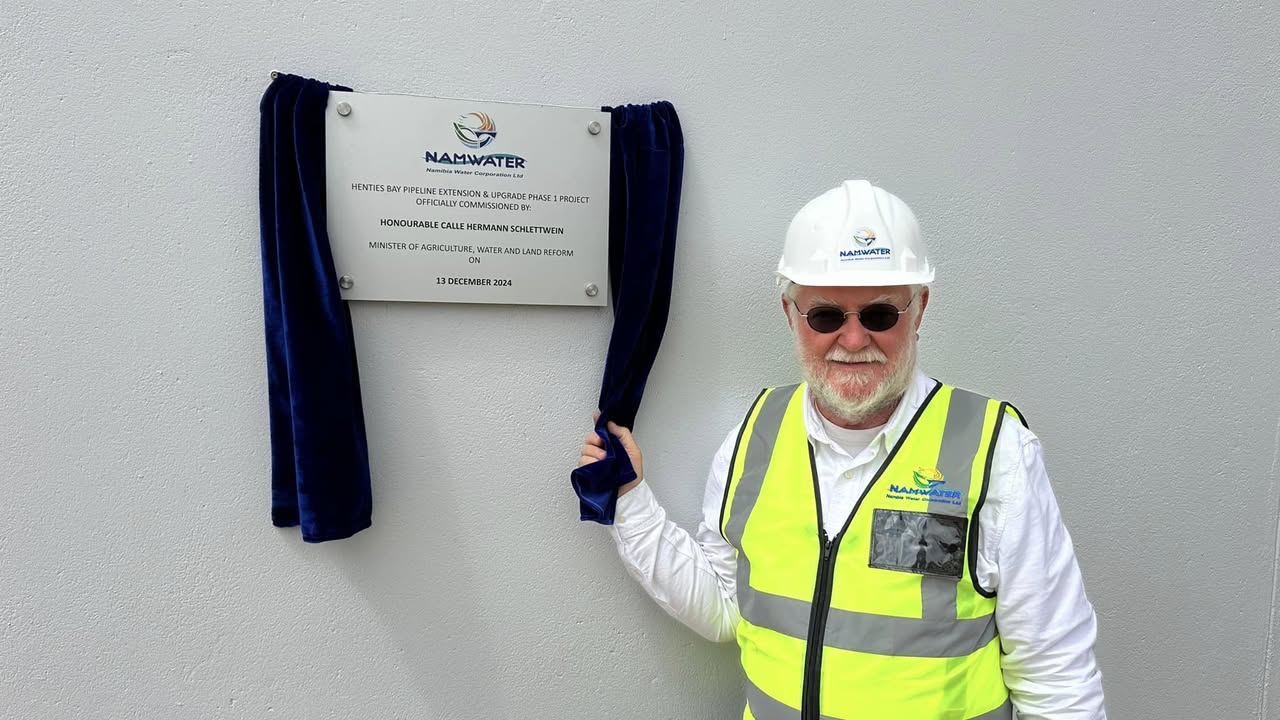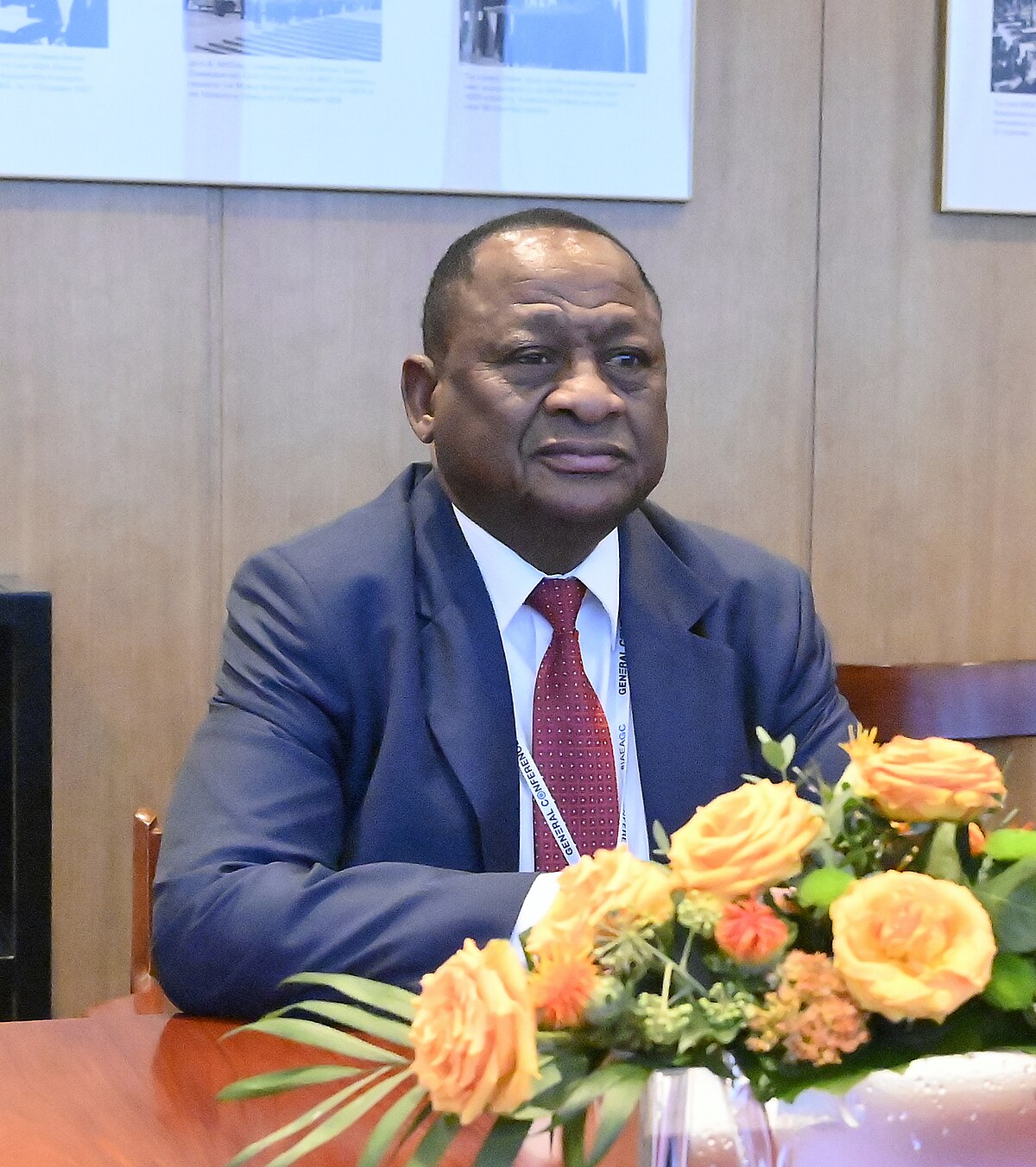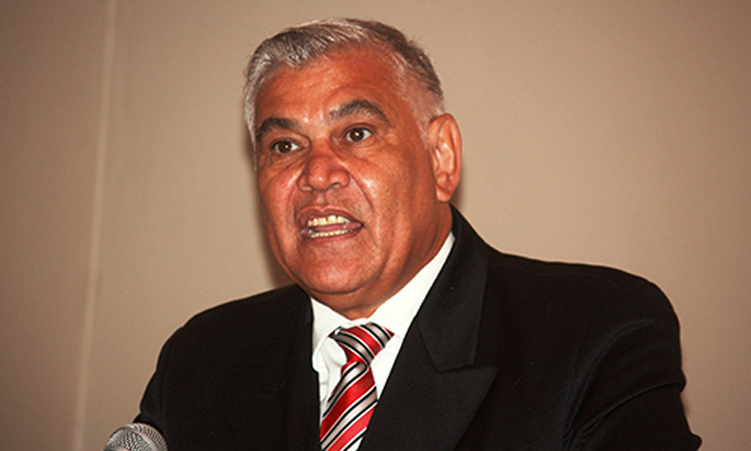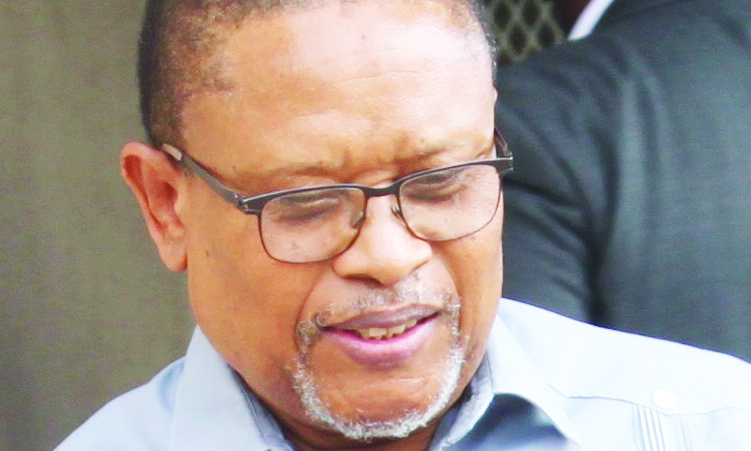OPPOSITION parties at Swakopmund are unhappy over an incident at the Meduletu polling station on Friday night when people were allegedly let in to vote after the cut off time of 21h00.
A DTA candidate told The Namibian the Erongo Regional Governor, Samuel Nuuyoma allowed about 50 people to vote at 21h30. Ursula Gawanas, Presiding Officer for Swakopmund confirmed yesterday afternoon that the incident had been reported to her.She said UDF Councillor Elifas //Khoaseb lodged the complaint.”It is very difficult to verify as I was not there,” Gawanas said.The Governor told The Namibian yesterday afternoon he did not know about voters being allowed in late.He said he had asked political agents at the polling station whether voters who were one minute late could be allowed in.”They said no and nobody was allowed to vote.”Ninety-eight per cent of the votes cast at Meduletu were for Swapo.Swakopmund recorded a voting percentage of 55,7 with 9 037 votes from 16 203 registered voters.The ruling party maintained its six seats held in the previous term with 5 184 votes.UDF won two seats with 1 505 votes, and the CoD and Swakopmund Residents Association (SRA) one each.The DTA lost both its seats, UDF won an extra seat and the SRA held onto its one seat.//Khoaseb of the UDF, who served as Councillor for five years, told The Namibian on Friday as he stood in line at the DRC polling station, that his party had campaigned hard.He was confident his party would do well.He expected a higher turnout this time as politics were beginning to develop along ethnic lines.”Many Nama/Damara people were never interested in voting, but they now feel comfortable with UDF and get more active.”The most important issues for voters at the DRC informal settlement were services, such as toilets, electricity and water taps at each erf.Apart from exercising their democratic right, they were voting for better services and more job opportunities.Selma //Hoaes (19), who voted for the first time, could only hope things would change.She arrived at Swakopmund in 2001 in search of work.She could not go further than Grade 7 in school as there was no money.Her only job prospect is to find housework.For the time being every day is a struggle for her and her one-year old son.Thusnelda Kauaria (20) was voting for change.”We need new leaders who will do more.Young people feel helpless and many of them do not see the need to vote.”At Walvis Bay voters felt more development was needed to create jobs.”It is most important to vote,” said Lucresia Geirises.She was hoping the party she voted for would look at the high price of electricity.”I am exercising my right to vote, which I did not have a few years ago,” said Theresia Pius.She said young people who had not voted before mostly had a good understanding of why it was necessary to vote.”Their also parents encourage them to vote.”For Max Bezuidenhout it was important to vote as he did not want to be a fence sitter.He said services at Walvis Bay and Swakopmund were the best in the country.He did not mind the long queues, saying he had a lot of patience.Most polling stations at the two coastal towns had long queues for most of the day, and after 17h00 many stations became busier.Many voters had to stand in an icy cold wind for more than an hour on Friday night.The voting pace at most stations was rather slow with between 50 to 100 votes cast per hour.The highest voter percentage in Erongo was recorded at Henties Bay where 79 per cent voted.The seven seats are shared by Swapo with three, the newly formed Civic Association Henties with three seats and UDF with one.The DTA, which previously had four seats, only received 88 votes and did not win a single seat.The CoD received 64 of the 1 735 votes cast.At Uis, 658 (67%) out of 979 votes were cast with the UDF winning the majority of seats, namely three.Swapo took the remaining two seats.The DTA lost its one seat.At Arandis, Swapo remains in the majority with four seats, down from six held previously.The UDF won two seats, one more than held before.The voter percentage was 56,4 with 1 210 votes cast.Ursula Gawanas, Presiding Officer for Swakopmund confirmed yesterday afternoon that the incident had been reported to her.She said UDF Councillor Elifas //Khoaseb lodged the complaint.”It is very difficult to verify as I was not there,” Gawanas said.The Governor told The Namibian yesterday afternoon he did not know about voters being allowed in late.He said he had asked political agents at the polling station whether voters who were one minute late could be allowed in.”They said no and nobody was allowed to vote.”Ninety-eight per cent of the votes cast at Meduletu were for Swapo.Swakopmund recorded a voting percentage of 55,7 with 9 037 votes from 16 203 registered voters.The ruling party maintained its six seats held in the previous term with 5 184 votes.UDF won two seats with 1 505 votes, and the CoD and Swakopmund Residents Association (SRA) one each.The DTA lost both its seats, UDF won an extra seat and the SRA held onto its one seat.//Khoaseb of the UDF, who served as Councillor for five years, told The Namibian on Friday as he stood in line at the DRC polling station, that his party had campaigned hard.He was confident his party would do well.He expected a higher turnout this time as politics were beginning to develop along ethnic lines.”Many Nama/Damara people were never interested in voting, but they now feel comfortable with UDF and get more active.”The most important issues for voters at the DRC informal settlement were services, such as toilets, electricity and water taps at each erf.Apart from exercising their democratic right, they were voting for better services and more job opportunities.Selma //Hoaes (19), who voted for the first time, could only hope things would change.She arrived at Swakopmund in 2001 in search of work.She could not go further than Grade 7 in school as there was no money.Her only job prospect is to find housework.For the time being every day is a struggle for her and her one-year old son.Thusnelda Kauaria (20) was voting for change.”We need new leaders who will do more.Young people feel helpless and many of them do not see the need to vote.”At Walvis Bay voters felt more development was needed to create jobs.”It is most important to vote,” said Lucresia Geirises.She was hoping the party she voted for would look at the high price of electricity.”I am exercising my right to vote, which I did not have a few years ago,” said Theresia Pius.She said young people who had not voted before mostly had a good understanding of why it was necessary to vote.”Their also parents encourage them to vote.”For Max Bezuidenhout it was important to vote as he did not want to be a fence sitter.He said services at Walvis Bay and Swakopmund were the best in the country.He did not mind the long queues, saying he had a lot of patience.Most polling stations at the two coastal towns had long queues for most of the day, and after 17h00 many stations became busier.Many voters had to stand in an icy cold wind for more than an hour on Friday night.The voting pace at most stations was rather slow with between 50 to 100 votes cast per hour.The highest voter percentage in Erongo was recorded at Henties Bay where 79 per cent voted.The seven seats are shared by Swapo with three, the newly formed Civic Association Henties with three seats and UDF with one.The DTA, which previously had four seats, only received 88 votes and did not win a single seat.The CoD received 64 of the 1 735 votes cast.At Uis, 658 (67%) out of 979 votes were cast with the UDF winning the majority of seats, namely three.Swapo took the remaining two seats.The DTA lost its one seat.At Arandis, Swapo remains in the majority with four seats, down from six held previously.The UDF won two seats, one more than held before.The voter percentage was 56,4 with 1 210 votes cast.
Stay informed with The Namibian – your source for credible journalism. Get in-depth reporting and opinions for
only N$85 a month. Invest in journalism, invest in democracy –
Subscribe Now!






